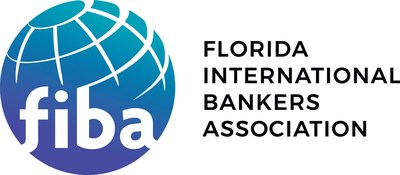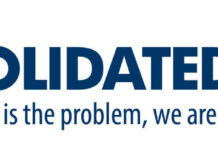MIAMI, Oct. 15, 2020 /PRNewswire-HISPANIC PR WIRE/ — On September 20, 2020, a report by Buzzfeed News leaked confidential files from U.S. Treasury’s Financial Crimes Enforcement Network (FINCEN) and revealed a list of banks that had informed suspicious activity to FinCEN through Suspicious Activity Reports (SARs). Because the regulatory reporting standards obligating banks to file SARs as well as the interplay between banks and law enforcement as a result of the filings is not widely understood and susceptible to misinterpretation, the Florida International Bankers Association (FIBA) believes it can well serve the South Florida and international banking communities by providing education on the SAR process.

FIBA– whose membership includes the largest financial institutions from the United States, Latin America, the Caribbean and Europe— brought together a taskforce to review the report and dispel its possible misinterpretation. FIBA strongly urges that by reporting “suspicious” activity as the law requires, banks are dutifully meeting, and at times exceeding, their legal requirements. In short, rather than an implied finding of criminality or unlawfulness, the bank’s obligations are that when they have any suspicion, they report it to the authorities for appropriate consideration.
Because of their understandably sensitive nature, SARs are confidential documents that should be protected as they pose a security threat to legal investigations, the safety of the bank personnel and can cause serious damage to persons named in the SAR who have not engaged in illegal activity.
David Schwartz, President and CEO of FIBA explains: “No bank would file a SAR if they knew it was going to be disclosed (to the public). It may well be treated (incorrectly, but nonetheless powerfully) as an accusation. And what’s worse, if a criminal or criminal organization obtained the name of the bank employee who filed the SAR, he or she could be subjected to harassment or physical harm,” Schwartz said.
Overall, banks, whether large, small, community banks, or local branches of international banks are involved in a comprehensive partnership and collaboration, with both regulation agencies and law enforcement through what is known as the Bank Secrecy Act.
The BSA requires financial institutions to keep records of cash purchases of negotiable instruments, file reports of cash transactions exceeding $10,000 (daily aggregate amount), and to report suspicious activity that might signify money laundering, tax evasion, or other illegal activities. BSA is a system developed by law enforcement and regulators who are charged with enforcement and only requires banks to report suspicious activity through SARs.
SARs are required to be filed with the Financial Crimes Enforcement Network (FinCEN) by financial institutions when they detect suspicious activities. SARs are unproven suspicions based on facts collected by BSA compliance investigators working for banks. SARs are not evidence of a crime but are meant to elicit further investigation by law enforcement, if warranted.
By law, banks are not required to suspend, limit, or prevent further activities with those customers they report (although many do on a facts and circumstances basis) , rather their regulatory role is to aid in detecting and notifying the proper authorities of their suspicions.
The success of the system is predicated on the confidentiality of the reports. In addition, banks do not have access to a complete record on customers, or SARs filed by other banks, and therefore are only aware of the activity within their own system.
“As non-government entities, banks help detect suspicious activity, but aren’t law enforcement or government officials to enforce or investigate these individuals,” said Daniel Gutierrez, Director for FIBA. “Each bank has their determination of risk, and many have implemented comprehensive systems to collect as much information and monitor accounts for money laundering, terrorist financing and fraud. Banks also have account closure and concerning activity committees where these matters are discussed at Management levels.”
All major financial institutions are regulated and must follow protocol and regulations that include actions such as developing risk-based anti-money laundering programs, establishing effective customer due diligence systems, file reports of cash transactions exceeding $10,000, run data against Office of Foreign Assets Control (OFAC) and other government lists and invest in the education and training of compliance personnel in specific AML certifications.
After a SAR is filed the financial institution has little to no feedback or information on what actions were taken. The Treasury’s Financial Crimes Enforcement Network has to investigate all filed reports they receive and subsequently delegate to the relevant law enforcement authority for instance the Federal Bureau of Investigation (FBI) or the local police department. Because of the secret nature of these reports there is no available information regarding the outcome of investigations that initiated from a bank issued SAR.
It is in all financial institutions’ best interest to cooperate and not endanger their organizations and/or themselves as there is growing enforcement of personal liability. Alcides Avila, founding partner of ARHMF and an attorney in its Corporate and Financial Services practice and member of the FIBA taskforce to analyze the FinCEN files leak explains: “This breach not only compromises the collaboration between law enforcement and financial institutions, it is illegal to disseminate this information. Also, the misreading of these technical documents might lead to slandering of innocent individuals and/or organizations that did nothing wrong.”
The Florida International Bankers Association, FIBA, endorses thousands of professionals a year throughout the world in certifications including Anti-Money Laundering Certified Associate (AMLCA), Certified Professional in Anti-Money Laundering (CPAML), AML Responsibilities for Managers, CEOs & Directors, Correspondent Banking AML and OFAC Sanctions among others.
To help combat money laundering, and other illicit activity, many banks have instituted internal policies that limit interactions with individuals or corporations who have more than a certain number of SARs on their records. However, it’s important to recognize that the role of financial institutions is to spot and report, much like the famous “if you see something, say something” in the travel industry.
Every year, more than 2 million SARs are filed with FinCEN by financial institutions and regulators and law enforcement do their part in the fight to bring those who are engaged in illicit activity to justice.
Logo – https://mma.prnewswire.com/media/1313561/FIBA_Logo.jpg
SOURCE FIBA Bankers







